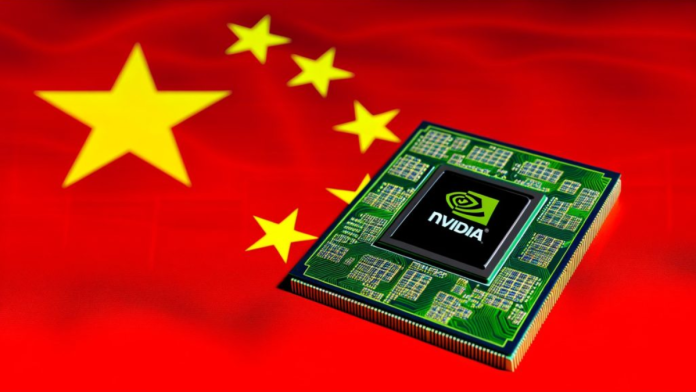China has launched a significant crackdown on the import of high-tech computer chips from the United States, focusing on Nvidia’s artificial intelligence (AI) processors. Customs officers at major ports across the country are now conducting detailed inspections of these shipments. The move is aimed at ensuring that Chinese technology companies, including ByteDance and Alibaba, follow the government’s instructions to stop purchasing specific Nvidia chips, after guidance from the Cyberspace Administration of China (CAC).
The main chips being monitored are the Nvidia H20 and RTX Pro 6000D. These models were specially designed for China while still complying with U.S. export rules, which restrict the sale of certain high-performance technology to specific countries. Chinese authorities want to make sure that companies do not buy restricted products, while also maintaining control over AI hardware entering the country.
In the past, Chinese customs had largely allowed chip imports as long as duties were paid at the border. However, over the past few months, a significant number of Nvidia chips have been brought into China through unofficial channels. Reports indicate that more than $1 billion worth of these AI chips were smuggled and sold within a three-month period. The new inspections mark a sharp shift in China’s approach to regulating high-end technology imports.
UK’s China espionage trial collapses — national security fears clash with trade diplomacy
Customs Inspections Intensify Across the Country
The intensified customs checks involve teams stationed at ports nationwide. Inspectors are reviewing both new shipments and previous import records for advanced chips. This approach aims to uncover attempts to bypass regulations or misdeclare shipments.
Some international companies, including U.S. quant trading firm Tower Research, have come under investigation for allegedly smuggling advanced hardware, including high-performance chips. This crackdown is part of a broader, coordinated effort by Chinese authorities to ensure compliance with import rules for sensitive technology.
Originally, the inspections focused on Nvidia’s China-specific chips, but they have since expanded to cover a wider range of advanced semiconductor products. Officials want to prevent smuggling of high-performance chips that are restricted under U.S. export controls. By tightening checks, Chinese authorities aim to ensure technology companies follow government rules and rely less on foreign AI hardware.
Additionally, customs officials are examining whether companies may have submitted false import declarations in the past. These efforts demonstrate China’s growing determination to regulate high-tech imports carefully, especially products that are central to AI development and research.
Impact on Technology Companies in China
Chinese regulators, led by the Cyberspace Administration of China, have instructed major technology firms, including ByteDance and Alibaba, to immediately stop ordering Nvidia products. This guidance came just months after Nvidia lifted certain U.S. export restrictions on the H20 chip and introduced the RTX Pro 6000D, another AI chip designed for China.
The crackdown is carried out in coordination with customs officials, who are now scrutinizing shipments to ensure compliance. This represents one of the most comprehensive enforcement efforts in recent years, highlighting Beijing’s focus on reducing dependence on foreign technology.
Previously, Nvidia generated billions in revenue from selling AI chips to China. The company recorded $4.6 billion in the first quarter of its fiscal year from H20 sales in China, making it one of Nvidia’s largest markets. However, the new customs regulations and inspection measures are making it increasingly difficult for these chips to enter the country.
By extending inspections to a broad range of advanced semiconductors and reviewing past import records, China is taking a strong stance on technology control. These moves emphasize the country’s commitment to encouraging domestic chip production while closely monitoring the inflow of sensitive U.S. technology.


